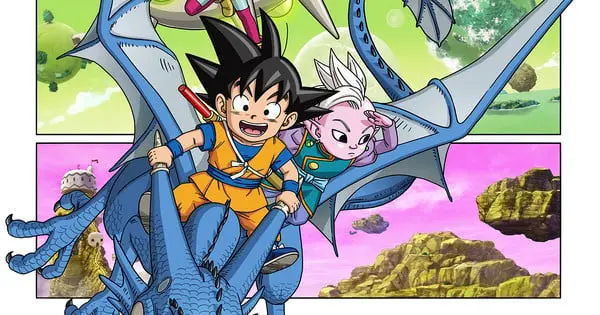The highly anticipated first season of the original Japanese anime series Apocalypse Hotel has drawn to a close, delivering a poignant and open-ended finale that explores themes of change, purpose, and the evolving relationship between humanity and a post-apocalyptic Earth. The 12-episode series, produced by CyberAgent and animated by CygamesPictures, aired from April 9 to June 23, 2025, culminating in its twelfth episode serving as the season finale.
A World Reclaimed, A Hotel Enduring
Apocalypse Hotel is set in the year 2057, when an unknown aerial contagion, “infortunium pollution,” forces humanity to abandon Earth and flee to space, rendering the air unbreathable for primate-based species. A century later, the sole remaining sign of civilization is the Gingarou Hotel in Tokyo’s Ginza district, meticulously maintained by its autonomous robot staff, led by the gynoid concierge Yachiyo. For centuries, the robots diligently awaited the return of their human guests, diligently preserving the hotel amidst a world overrun by nature.
The Return of Humanity
The central conflict and the driving force of the season finale revolve around the long-awaited return of a human. The final episode sees Tomari Iori, a human raised on an interstellar ark, arrive on Earth on a solo survey mission to assess its habitability. This event marks a significant turning point for Yachiyo and the hotel, whose existence has been largely defined by the anticipation of humanity’s return.
Upon Tomari’s arrival, it is revealed by an Environmental Checker Robot that the “infortunium pollution” has indeed been cleansed from Earth, thanks to a special plant that grew from an alien seed gifted to Yachiyo much earlier. Tomari, ecstatic about the news, attempts to remove her spacesuit. However, a bittersweet twist emerges: while the planet is no longer toxic, humans have been in space for so long that their bodies have developed an allergy to Earth’s atmosphere, meaning they can only visit for short periods.
Yachiyo’s Evolving Purpose
The finale delves deeply into Yachiyo’s internal journey. For centuries, her primary programming and purpose were to serve humanity and maintain the hotel for their eventual return. The moment a human finally checks in, while a monumental event, doesn’t bring the overwhelming sense of relief or accomplishment Yachiyo might have anticipated. Instead, the episode explores her acceptance that her purpose has evolved beyond simply catering to humans.
The narrative beautifully illustrates Yachiyo’s growth, showcasing how she has adapted over centuries to accommodate a diverse array of extraterrestrial guests who have come to inhabit the hotel and Earth. The ending implies that Yachiyo’s true success and fulfillment come from embracing change and caring for all her clients equally, regardless of their origin. The hotel, once exclusively for humans, has transformed into a bustling intergalactic hub.
An Open-Ended Future
While the first season concludes with a sense of resolution for Yachiyo’s character arc, it simultaneously leaves the door open for future narratives. Tomari departs Earth, promising Yachiyo that more humans will visit in time, suggesting a future where humanity might slowly reintegrate with their home planet, albeit in a modified capacity. This “conclusive while leaving it open for more” ending has led to discussions among fans regarding the possibility of a second season. As an original anime, Apocalypse Hotel does not have source material to adapt, giving its creators full creative freedom for any potential continuation.
The finale of Apocalypse Hotel ultimately delivers a poignant and thoughtful conclusion, celebrating the resilience of life, the beauty of adaptation, and the idea that purpose can transcend original parameters.










